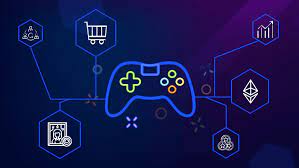The company that declared bankruptcy was consistent with the FB goal. Can Libra complete its mission for it?
A blockchain payment startup is trying to serve a "bankless account" user, but the collapse of the company is not a good sign for other companies with similar plans, such as Facebook.
At the end of 2017, South Africa-based Wala launched its own cryptocurrency in developing countries in Africa, hoping to eventually replace its more volatile currency with its own cryptocurrency Dala.

But on June 24, nearly two years later, the company declared bankruptcy, with a total of 100 employees, most of whom were laid off. The company announced that it was unable to raise a second round of investment for obvious reasons: Wala was unable to break away and eventually replace the existing banking system.
- Facebook Libra turned out, People’s Daily and CCTV screamed, and the policy should be better?
- Regarding the fire currency public chain and Nervos, these 6 questions may be your concern.
- Interview with Babbitt | Connect blockchain technology to 12 provincial courts, how does Zhongjing Tianping use technology to drive the future of law?
The company's founder Samer Saab said:
“We cannot completely eliminate reliance or contact with existing infrastructure.”
For Facebook, Wala may be a lesson. Like Wala, Facebook's digital currency Libra also tends to provide banking services to "people without a bank account." According to Facebook, about 1.7 billion people around the world face problems such as “under-funded, high and unpredictable expenses, too long a bank, and lack of necessary documents”, which are obstacles to enjoying basic banking services.
Wala's story
Originally a regular payment startup, Wala turned to the blockchain at the end of 2017 – using the popular Ethereum network at the time, hoping to reduce its reliance on fragmented, unreliable infrastructure in sub-Saharan Africa.
At first, Wala's brand remodeling was doing very well. Raised $1.2 million through token sales and established an independent foundation, the Dala Foundation, to oversee its day-to-day operations.
In the following year, the company said its revenue and users surged, reaching 150,000 users. In June last year, Coindesk reported that the company processed about 6,300 small transactions per day, most of which were less than $1 for paying for mobile phone bills.
Wala believes that Africa has a wealth of untapped investment opportunities. However, the limitations of its blockchain solution quickly became clear, and the solution involved moving the transaction to the "chain" processor.
Unlike Ethereum, the network is private and depends on existing infrastructure. In order to deposit funds into their Dala wallet, so-called “no bank account” customers must transfer funds from ordinary bank accounts, usually through face-to-face transactions with local tellers – in the words of Saab, “artificial ATM machines”.
Therefore, Wala relies heavily on the centralized fragile system it wishes to replace. In June 2018, like Libra, the company's co-founder, Tricia Martinex, told Coindesk that it also had a rough "plan" to fully decentralize, but these plans never materialized.
July last year was a crucial period for Wala, when Ugandan parliamentarians passed a social media tax. Ugandan Internet users are Wala's largest user base, and they have protested offline, canceling their Internet subscriptions, and ultimately causing serious consequences for service providers.
Saab said:
“Almost overnight, consumers broke out and the flow of information changed. Our system is often down, and there may be problems for six days a week.”
Wala users suffered huge losses and the company was unable to get a second round of VCs.
“Whether or not the infrastructure is decentralized, you still have to rely on something. Even in developed markets, business, capital and capital flow through banks. When people want to convert fiat money into cryptocurrencies, they must go through banks and exchanges. – Whether it is to exchange currency or let users buy goods and services."
“We cannot completely eliminate reliance or contact with existing infrastructure.”
Of course, Facebook is orders of magnitude larger than Wala. But they still need to rely on local telecommunications infrastructure and banks (Libras is apparently generated by legal currency deposits) to help some of the people they claim to be helping. (But not many people really believe this.) As suggested by the World Bank, the problem of bankless accounts can be better solved by digitizing existing systems, rather than building additional on top of existing systems. Complex part.
It seems that it is still necessary to provide banking services for people who do not have bank accounts.
We will continue to update Blocking; if you have any questions or suggestions, please contact us!
Was this article helpful?
93 out of 132 found this helpful
Related articles
- The US Congress asks Facebook to stop Libra, but the social giants are moving frequently.
- Newer than the original segment: blockchain – from the triangle hypothesis to the extended model
- Read the history, current status and future opportunities of decentralized identity recognition
- Viewpoint | Giants enter, super industry cattle or on the road
- Several brain holes launched by Libra: Will Bitcoin become a "digital artifact"?
- Can US idle home appliances provide years of energy for Bitcoin? Cambridge University Innovation BTC Mining Index
- Trading cryptocurrencies on ATM machines, this feature will be available in the next 170,000 machines






